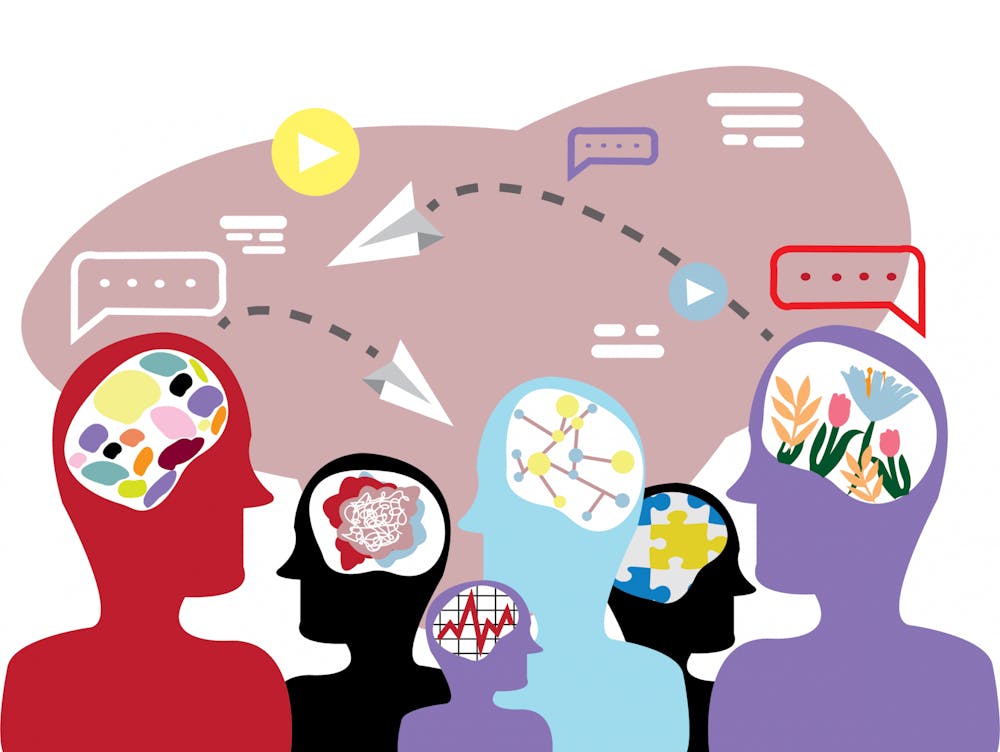The semi-virtual return to campus this fall might pose a challenge to fostering deep connections with one another, but no student is alone.
A hybrid semester means reliance on a community that can exist online and continue to support mental health.
Casey Lee, a licensed professional counselor and relationship expert, said stress will arise "in a new environment with unfamiliar people," particularly as the university transitions into a different format. Relationships factor into this.
“Distress in a relationship adversely affects our immune system and hormonal system and even our ability to heal,” Lee said in an email interview.
Meanwhile, the feeling of loneliness can lead to emotional isolation and raise health concerns by raising blood pressure frequently, Lee said. Rejection and exclusion also trigger emotional and physical responses to separation.
Nurturing mental health is critical and could lead to a more pleasant experience this fall by embracing certain times of independence and understanding the human need for connection.
“It's rare that so many people experience a shift in the world at the same time, but we're all going through this,” Ambra Hiott, the director of the Leadership and Service Center, said. “If we're starting to feel heavy, then that means that others are likely starting to feel that, too, and that should be the invitation to reach out and connect to others instead of isolating further.”
There will be many approaches to being social in this new world. In attempting different paths, students might face uneasiness and hardship.
“We are entering uncharted territory,” Lee said. “These potential experiences of rejection, abandonment, resentment or bitterness can threaten our mental or emotional health.”
No student has experienced Carolina this way, so Hiott said she recommends becoming more curious.
“Now's the time to rise to the occasion, to develop yourself, increase your own self-awareness,” Hiott said. “Get started and recognize it's not going to be perfect at first.”
According to April Scott, associate director of Mental Health Initiatives at Student Health Services, being part of a community is key to combating loneliness and isolation. Hiott said community and connection have "always" been "core to the student experience."
“We are reimagining how to create those connections from a staff perspective, but, as always, we need students to also be seeking out those connections,” Hiott said.
Courtney Buzan, assistant director of Campus Programs, said one goal this year is to acknowledge that campus will feel different. She said she encourages students to "build community within the means" they have.
Each student’s means might be different than those around them, but their shared vulnerability can serve as a source of comfort among all the discomfort. It will take "intentional" efforts to "maintain the momentum" to "push past the discomfort," Scott said.
“You gotta start somewhere,” Kaci Latimore, a third-year university ambassador, said.
Lee said it's fine to struggle with making connections online.
“Sometimes the demands of everything is so great you may just want to isolate yourself,” Lee said. “Keeping up with a lot of people can be exhausting so start small and aim to connect with a few people.”
Latimore said if students try now, the effort can domino into more than a single connection.
Intentions can be big or small, but they will require showing up physically, whether that's in a small setting or on a Zoom call, mentally participating and considering following up with what feels right.
“The key is for students to absorb that and reflect, and figure out what they want to do, and how they want to live their student life at Carolina and to take that first step,” Hiott said.
There are many first steps to take at Carolina. Buzan said the opportunities for virtual programming are limitless and that Garnet Gate is a "one-stop shop" for getting involved.
“It doesn't just always need to be a big scale event for you to have a reason to get out of your room,” Buzan said.
Getting involved with one’s environment, online community and peers can help lead the way to a more positive experience this fall.
Scott said students should set time aside to continually interact online, ask someone to hold them accountable and "lean heavily" on what resources the university has to offer.
“We all need to have the resources at Carolina on the top of our brains so that we can refer ourselves or our friends if we feel the need to use them,” Hiott said. "The key is to just be there for one another."
Maintaining connections is a useful skill to keep conversation and relationships going regardless of one’s place in the world.
"There’s [an] African proverb, “if you want to go fast, go alone. If you want to go far, go together,"" Lee said. "We are stronger together."

